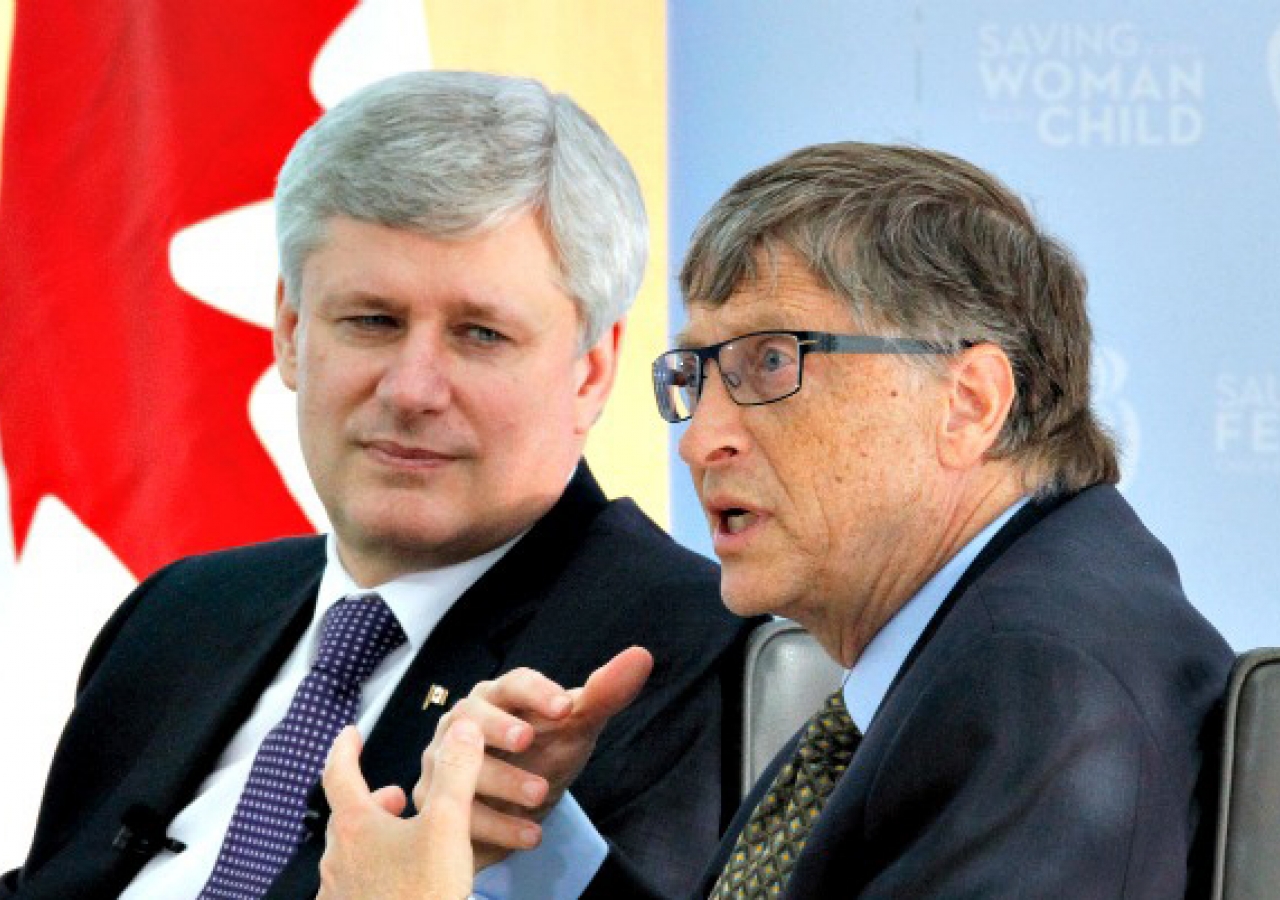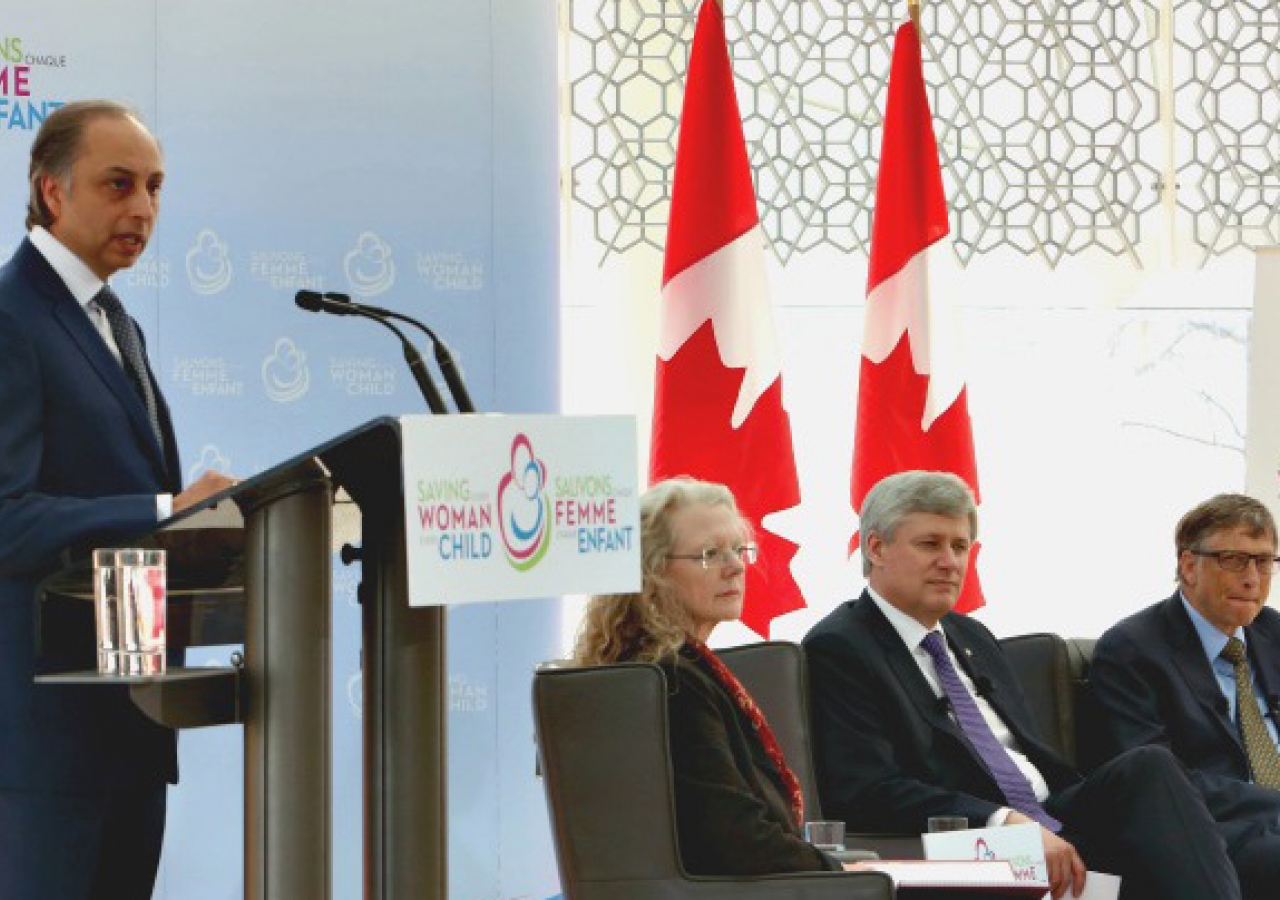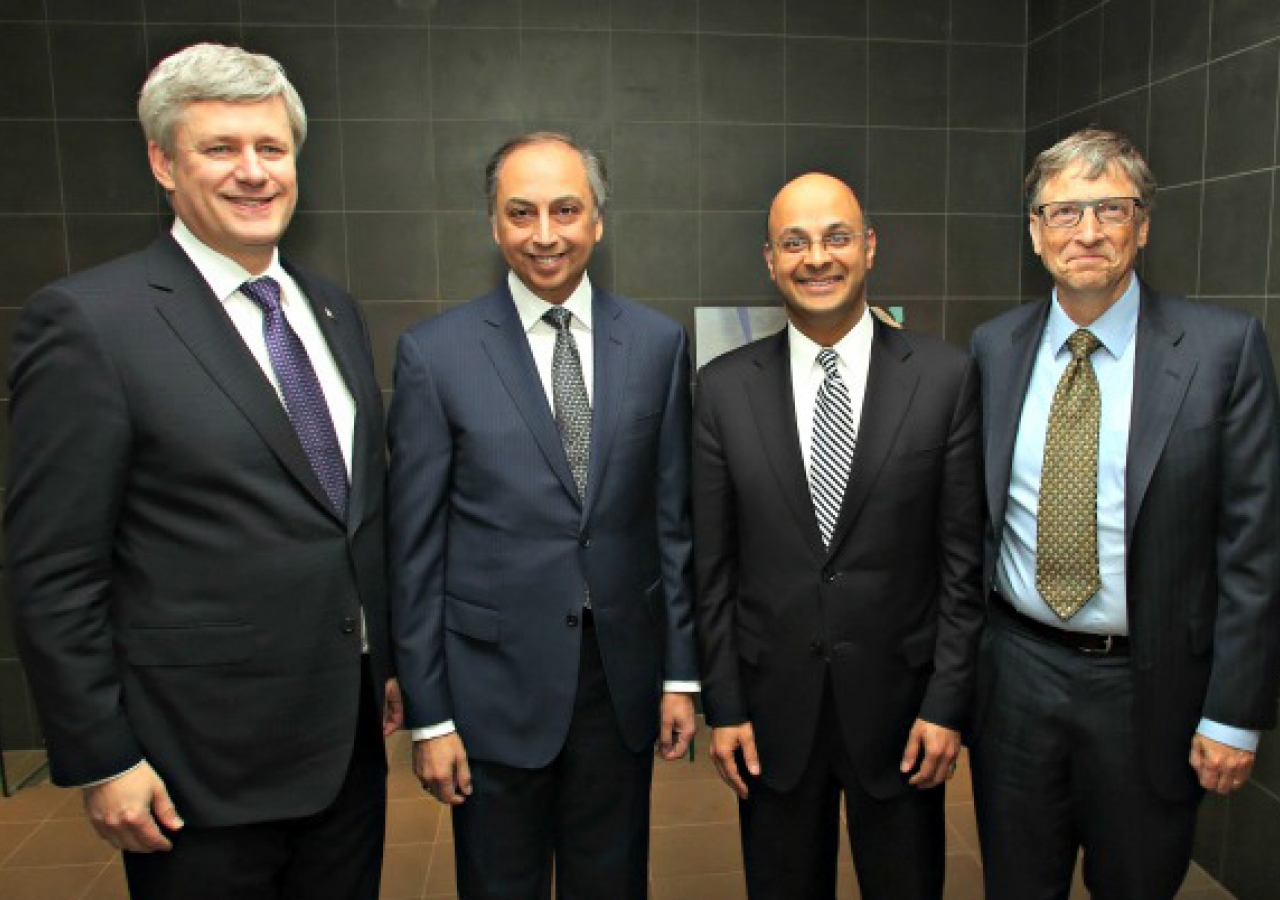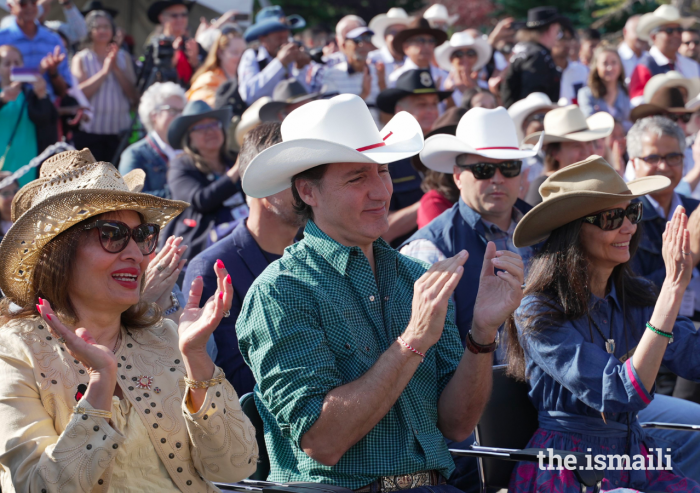More than 300 people gathered in Ottawa to hear Mr Gates discuss the topic with Prime Minister Stephen Harper, at an event moderated by Susan Johnson, Director General of International Operations for the Canadian Red Cross.
“The last 15 years have seen more progress than ever before, and I think we can set even more ambitious goals for the next 15 years,” said Mr Gates, Co-chair and Trustee of the Bill and Melinda Gates Foundation. “In 2015, childhood deaths are half of what they were in 1990.”
Despite progress, both leaders made the case for substantial, ongoing investments in global health, emphasising that low-cost interventions can have a large impact.
“I hope … we will actually make the kind of transformational differences to the entire planet, that have been made in the last 10 or 15 years to certain parts of the world,” said Prime Minister Harper. “Because we can do this everywhere, and we should grab the opportunity.”
In their conversation, Prime Minister Harper and Mr Gates discussed the importance of vaccinations, proper nutrition, and accountability and measuring results. Ms Johnson also asked Mr Gates to reflect on the role of innovation in improving global health.
Mr Gates laid out three key areas of focus for innovation in vaccinations: developing new vaccines for diseases like HIV and tuberculosis; ensuring that existing vaccines are available in developing countries; and figuring out how to improve vaccination rates to the point that diseases are eradicated.
He emphasised that success is possible – vaccination rates for polio have almost reached the tipping point.
“In five years, with any luck at all, we will see polio declared eradicated,” said Mr Gates.
At the event, Prime Minister Harper announced new initiatives aimed at eradicating polio and tetanus, as well as support to 20 teams made up of African and Canadian researchers, who will work to innovate new solutions to health challenges in 13 countries in Africa.
“We are a very privileged society in Canada,” said Prime Minister Harper. “We have so much to give to others, and we can make a really big difference in their lives, in profound ways.”
Prime Minister Harper also thanked the Aga Khan Development Network (AKDN) for its investments in maternal and child health, and broader “contributions to humanity at large.”
Dr Mahmoud Eboo, the AKDN’s resident representative in Canada, made opening remarks at the event, noting the Network’s longstanding commitment to maternal and child health.
“Canada’s leadership has provided a strong boost to [the AKDN’s] collective efforts, allowing us to expand their reach, improve their quality, and ensure their sustainability,” he said. “As His Highness said when he addressed the prime minister’s MNCH summit last May in Toronto, ‘improving maternal, neonatal and child health should be one of the highest priorities on the global development agenda.’”
For over thirty years, Canada and the AKDN have collaborated on development initiatives around the world. That partnership has been particularly strong in promoting maternal, newborn and child health, through programs in Afghanistan, Pakistan, Tajikistan, Kyrgyzstan, Tanzania, Mozambique, and Mali.
The Gates Foundation and the AKDN have also had an important relationship on MNCH issues, most recently in support of the work of the Aga Khan University.
This article has been reprinted with permission from the Aga Khan Foundation Canada website.










